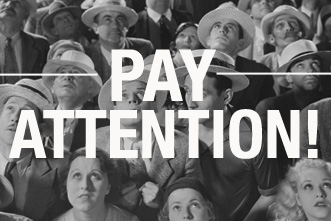“What captures your attention controls your life,” says Karen Anderson, an award-winning journalist and writer for the Harvard Business Review. I believe she’s right. The only problem is, the things that often capture my attention, well, they’re not things that I want controlling my life.
For many of us, what controls our life is buried in the busyness of the days we live. We try to pare down the tasks we manage, but like the rising tide, the list keeps returning and the end result—we’re drowned by our own out-of-control workflow. Jeff Shinabarger, author of the book More or Less: Choosing a Lifestyle of Excessive Generosity, says this:
“There was a time, not so long ago, when the polite answer to the question, ‘How are you?’ was, ‘Fine.’ It seems that busy is the new fine. We look at one another with that shake of the head, sideways smirk and glossy eyes, proclaiming our busyness. This shared response succinctly identifies a recent cultural shift: We now determine the significance of a person by how busy they are. Somehow, busy has become better than fine.”
Let’s be honest, if our personal attention was an economy most of us would be on the verge of a market crash.
We’re hit with so much information every day that we’re often on the verge of panic mode. We check our email in two-minute increments, review our Facebook wall and peruse our Twitter feed by the hour to stay current and ready for the next task to float our way—or that story or anecdote that will give us a short surge of adrenaline—but the end result for most of this effort is, actually, pretty weak. Compared to what we could be doing, it’s often a waste of attention.
Most of the daily content we consume—what gets our attention—is just a distraction from the real work we’re called to do. And, in this crazy information age, we need to be vigilant with our attention. We’re only given so much to spend. Herbert A. Simon, a Nobel Prize winner, once wrote:
“In an information-rich world, the wealth of information means a dearth of something else: a scarcity of whatever it is that information consumes. What information consumes is rather obvious: it consumes the attention of its recipients.”
Many leading thinkers today call this “attention economics.”
The premise: When we give our attention to something, we’re always taking it away from something else. Andy Stanley’s book, Choosing to Cheat, is wrapped around this principle. Stanley says, “When we cheat, we choose to give up one thing in hopes of gaining something else of greater value.”
Stanley has given permission to thousands of pastors and leaders to cheat ministry for the sake of family. It’s a good kind of cheating—one that’s life giving.












